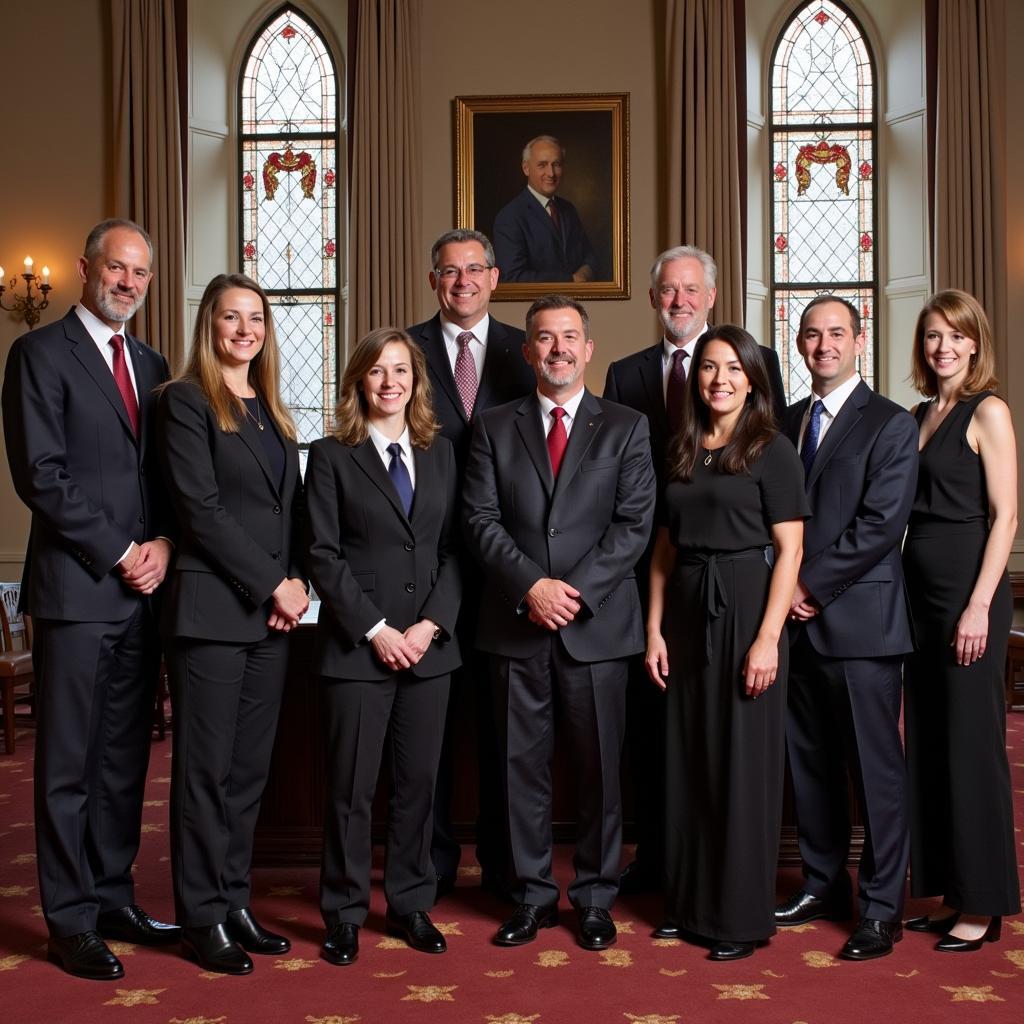The Wesleyan Theological Society (WTS) offers a rich tapestry of theological exploration, fostering dialogue and scholarship within the Wesleyan tradition. This article delves into the society’s history, purpose, and impact on contemporary theological discourse.
The Wesleyan Theological Society provides a crucial platform for scholars and theologians to engage with Wesleyan thought. It encourages rigorous academic study and promotes a deeper understanding of Wesleyan theology’s relevance in today’s world. From its historical roots to its ongoing contributions, the WTS plays a vital role in shaping theological discussions within the Wesleyan tradition and beyond.
Understanding the Mission of the Wesleyan Theological Society
The WTS is dedicated to promoting the serious study of Christian theology within the Wesleyan-Arminian tradition. It seeks to foster an environment where scholars can engage in robust academic discussion, present research papers, and collaborate on projects related to Wesleyan theological thought. This commitment to scholarly excellence makes the WTS a respected voice in the broader theological community. The society’s dedication to fostering dialogue ensures that Wesleyan perspectives are incorporated into broader theological conversations.
How the Wesleyan Theological Society Enhances Theological Discourse
By providing a platform for scholars to present and discuss their work, the WTS facilitates the development and dissemination of new insights within Wesleyan theology. This rigorous engagement with theological concepts contributes to a deeper understanding of Wesleyan beliefs and their implications for contemporary issues. The society also encourages interdisciplinary dialogue, enriching the conversation with perspectives from various fields of study.
 Scholars engaging in discussion at a Wesleyan Theological Society conference
Scholars engaging in discussion at a Wesleyan Theological Society conference
The Historical Context of the Wesleyan Theological Society
The WTS emerged from a desire to uphold and promote the Wesleyan-Arminian theological perspective within the broader Christian landscape. Its foundation was rooted in the belief that Wesleyan theology offered a unique and valuable contribution to Christian thought. Understanding the historical context of the WTS provides crucial insights into its ongoing mission and impact.
Key Figures and Influences in the WTS
Throughout its history, the WTS has benefited from the contributions of numerous influential theologians and scholars. These individuals have shaped the direction of the society and helped to establish it as a leading voice in Wesleyan theological scholarship. Their contributions continue to resonate within the society and beyond.
 Founding members of the Wesleyan Theological Society
Founding members of the Wesleyan Theological Society
The Impact and Relevance of the Wesleyan Theological Society Today
The WTS continues to play a vital role in shaping theological discourse within the Wesleyan tradition and beyond. Its commitment to scholarly excellence, fostering dialogue, and promoting Wesleyan perspectives makes it a relevant and influential force in the contemporary theological landscape. The society’s engagement with current issues ensures that Wesleyan theology remains relevant in a changing world.
Engaging with Contemporary Theological Challenges
The WTS actively addresses current theological challenges, providing a forum for scholars to explore and respond to pressing issues from a Wesleyan perspective. This engagement ensures that Wesleyan theology remains a dynamic and relevant force in the 21st century. By addressing these challenges, the WTS contributes to a deeper understanding of how faith interacts with the contemporary world.
 Contemporary scholars presenting research at a Wesleyan Theological Society event
Contemporary scholars presenting research at a Wesleyan Theological Society event
Conclusion
The Wesleyan Theological Society serves as a vital hub for scholarship and dialogue within the Wesleyan tradition. By fostering rigorous academic study and promoting engagement with contemporary issues, the WTS continues to shape theological discourse and contribute to a deeper understanding of Wesleyan thought. Its ongoing work is essential for maintaining the vibrancy and relevance of Wesleyan theology in the 21st century.
FAQ
- What is the main purpose of the Wesleyan Theological Society? To promote serious study of Christian theology within the Wesleyan-Arminian tradition.
- How does the WTS contribute to theological discourse? By providing a platform for scholars to present research and engage in discussions.
- Who are some key figures associated with the WTS? While specific names would require further research, influential Wesleyan theologians and scholars have shaped the WTS.
- How does the WTS remain relevant today? By actively engaging with contemporary theological challenges and promoting dialogue within the Wesleyan tradition.
- What is the significance of the Wesleyan-Arminian tradition? It emphasizes free will and God’s universal love, offering a unique perspective within Christian theology.
- How can I become involved with the WTS? Information on membership and participation can likely be found on the official WTS website.
- What resources does the WTS offer to scholars and students? This would depend on the specific services provided by the society; likely including publications, conferences, and networking opportunities.
Other Resources on Society For Peace
- Interfaith Dialogue and Peacebuilding
- The Role of Education in Promoting Peace
For further assistance, please contact us: Phone: 02043854663, Email: [email protected], or visit our address: Khu 34, Bac Giang, 260000, Vietnam. We offer 24/7 customer support.